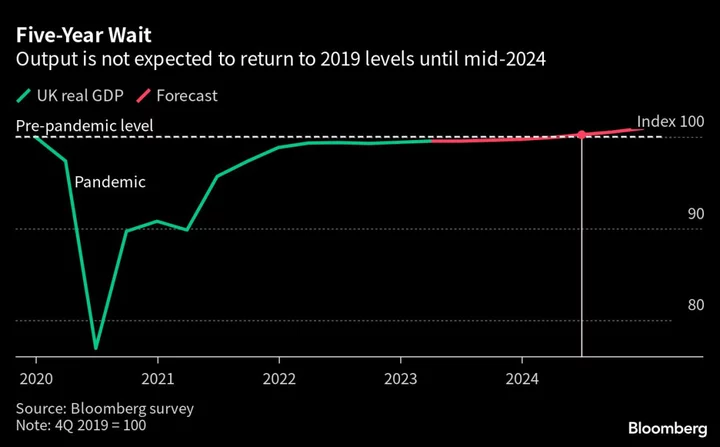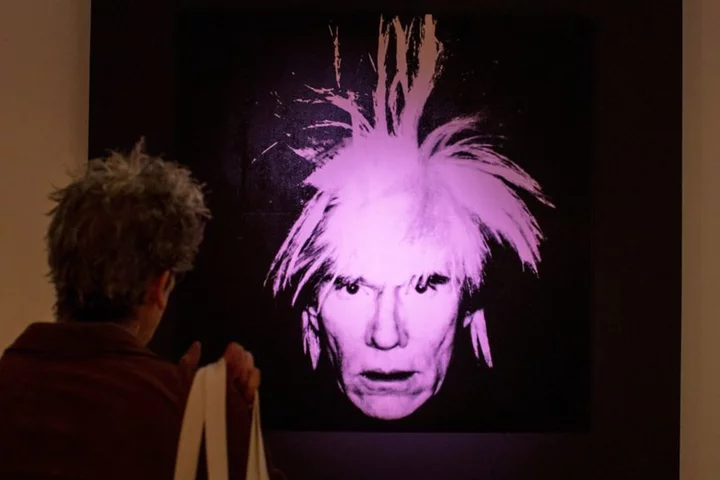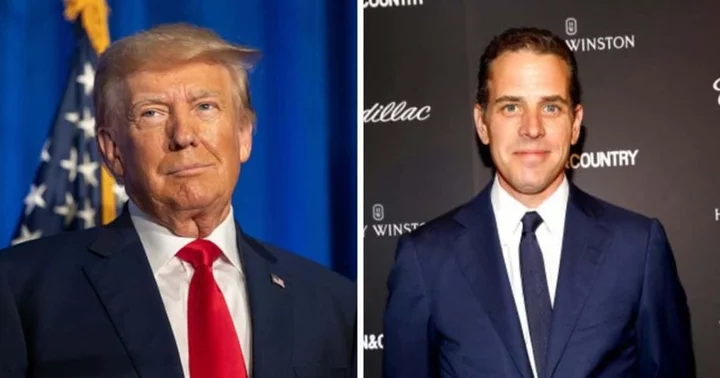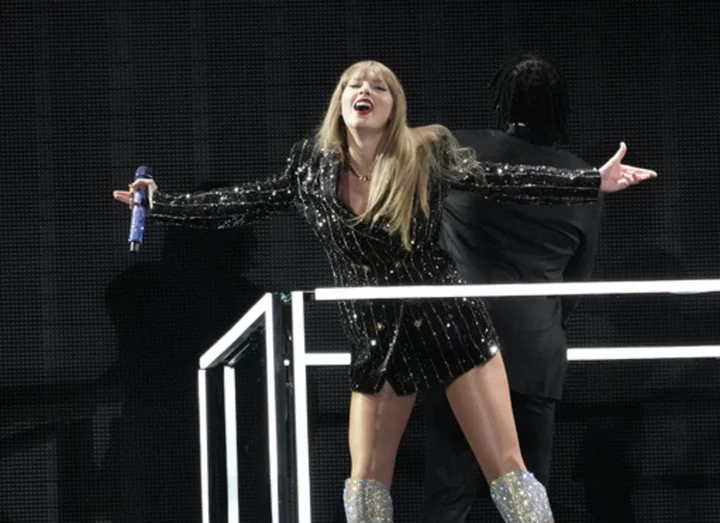Rishi Sunak said he is “absolutely confident” he will meet his pledge to halve inflation this year, after the Bank of England’s decision to raise interest rates to 5% laid bare frustration among ministers and Conservative politicians about the slow progress in fixing a cost—of-living crisis.
“Rooting out inflation is not easy, it requires difficult decisions, it doesn’t happen overnight,” the British prime minister said at a business event in Kent, southeast England on Thursday in his first public comments after the central bank’s announcement. “I’m here to tell you that I am totally — 100% — on it and it’s going to be OK and we are going to get through this.”
Rising interest rates and stubbornly high inflation are a major problem for Sunak, who has staked his premiership on fixing Britain’s economy but is now facing criticism — including from members of his own Tory party — that the government is not doing enough to help Britons facing surging mortgage costs.
Read More: Sunak Struggles to Contain Tory Anxiety Over UK Mortgages (1)
The stakes are especially elevated because the Conservatives trail the main opposition Labour Party by a double-digit margin in polls ahead of a general election expected next year. The risk for Sunak is not only that he fails to deliver on his core inflation pledge, but that the Bank of England’s efforts to tame price growth tip the UK into a recession just as people prepare to vote.
Tory tensions and frustrations are starting to spill out into the open — with Bank of England Governor Andrew Bailey increasingly the target. “The Bank of England has failed, does it still deserve to be independent?” Jacob Rees-Mogg, a prominent figure on the right-wing of the Tory party closely aligned with former premiers Boris Johnson and Liz Truss, said on Twitter.
Even the government is getting in on the act. In a regular briefing ahead of the latest rate decision, Sunak’s spokesman Jamie Davies declined three times to say Bailey is doing a good job as central bank governor.
Though he said Bailey retains the “full confidence” of the prime minister, such a lukewarm endorsement reveals the exasperation at the top of government over the bank’s failure to rein in inflation, which last hit the 2% target in July 2021 and has been more than four times that level for the past 14 months.
“We’re not expecting or desiring a recession, but we will do what it takes to get inflation back down to target,” Bailey told broadcasters.
Underscoring the political nightmare for the Tories, a Survation survey published Wednesday found more people see the government as responsible for taming inflation, rather than the Bank of England. That’s despite the BOE controlling interest rates, the primary policy tool for tackling rising prices.
Still, Sunak has repeatedly said voters should judge him on bringing inflation down - a pledge which sits awkwardly with his team’s implied criticism of the Bank of England.
Part of the government’s frustration lies in how it is boxed in its own response. Policies that would grow Britain’s economy and ease inflationary pressures — such as building lots of new homes, using immigration to fill job vacancies and completing high-profile infrastructure projects like HS2 — are unpopular with large swathes of his parliamentary party.
Read More: BOE Steps Up Inflation Fight With Surprise Rate Hike to 5% (1)
Increasing cash support for struggling families also goes against Sunak’s promise to get public finances back on track. That’s seen as critical for his plan to try to campaign on his economic record at the next election.
“We cannot in a situation like this borrow too much money because that makes everything worse,” Sunak said. “I’d love to cut your taxes,” he added. “I can’t say ‘yes’ to every single thing people want me to spend money on.”
Meanwhile the measures Chancellor of the Exchequer Jeremy Hunt announced in March to boost economic growth — like programs to encourage more people to return to the workforce, and a significant tax break to encourage business investment — take time to affect the economy, something Sunak lacks.
Hunt is due to meet banking CEOs Friday to discuss help for mortgage-holders, and will also meet energy regulators next week to talk about how to ensure drops in wholesale prices are passed through to consumers.
“High inflation is a destabilizing force eating into pay checks and slowing growth,” Hunt said in a statement Thursday. The government’s resolve to bring down inflation is “watertight,” he said, “because it is the only long-term way to relieve pressure on families with mortgages.”
Yet the blame game is likely to persist until the government can make headway. When Sunak announced his inflation target, it was widely assumed it would fall mechanically as the energy-cost surge triggered by Russia’s invasion of Ukraine fell out of the year-on-year comparisons.
But a tight labor market has scuppered that hope, and left Sunak vulnerable to attacks from across the political spectrum.
Opposition Labour Party Leader Keir Starmer told the Times CEO Summit the Conservatives have overseen an “unprecedented” 13 years of “flatlining” wages, and the UK is “not well prepared to deal with a new age of insecurity.”
“This country always gets hit hardest, whether it’s mortgage rates, interest rates, energy prices, food prices,” he said.
--With assistance from Lizzy Burden, Alex Morales and Emily Ashton.









